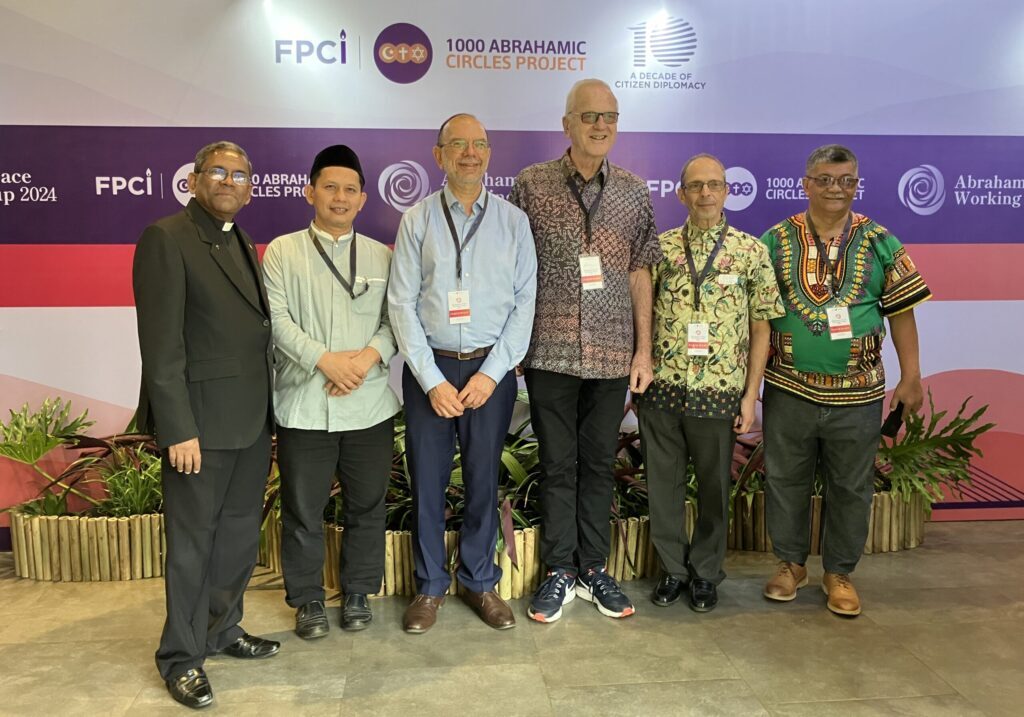Australia/Israel Review
Asia Watch: Laws and their limits
Jan 9, 2018 | Michael Shannon

Indonesian President Joko Widodo’s protracted struggle with Islamist groups bent on opposing him in all things is set to continue as the 2019 presidential elections approach. Legislative and judicial changes indicate a pushback against the illiberal forces that have harassed ethnic and religious minorities, as well as destroying the career of Jokowi’s protégé, former Jakarta Governor “Ahok”. But doubts remain as to whether these changes will be enough to counter deeper cultural currents.
In early November, Indonesia’s Constitutional Court issued a landmark ruling in which the government was instructed to officially recognise traditional faiths – a small but overdue victory for religious freedom and equality before the law.
The state had hitherto only recognised Islam, Catholicism, Protestantism, Buddhism, Hinduism and Confucianism, leaving about 245 traditional faiths in limbo. The court’s ruling creates a seventh all-encompassing category, allowing up to 15 million native faith adherents to record their religion, which will ease the process of obtaining birth certificates, registering a marriage or qualifying for government services.
Despite the Constitutional Court ruling and a charter that specifically guarantees freedom of religion, minorities still face an uphill battle to preserve their rights in the face of the growing Islamist influence. Human Rights Watch recently called on the government to scrap a draft law from the Religious Affairs Ministry on the “protection” of religious rights, which it says only reinforces existing regulations that discriminate against minorities.
The so-called Religious Rights Protection Bill enshrines and expands the reach of Indonesia’s blasphemy law, which punishes deviations from the central tenets of the six officially recognised religions with up to five years in prison, as well as existing decrees that impose restrictions on minorities seeking permits to build houses of worship.
With the legislation still on Parliament’s schedule and the 2019 presidential elections drawing closer, President Widodo appears unwilling to intervene. It may be that Jokowi has spent much of his political capital on a move to ban mass organisations deemed to be or have acted in contravention of the founding state ideology of Pancasila, which enshrined religious pluralism as pivotal to a unitary state comprised of myriad traditions spread over thousands of islands.
The regulation that Jokowi decreed to ban Hizb ut-Tahrir Indonesia in July was passed into law in late October, and in invoking Pancasila, it appears that Jokowi sees nationalism as the strongest hand to play against Islamism. Arguments employed by the government to justify the law featured such terms as “national alert” and “a threat to the Unitary State of the Republic of Indonesia.”
Several high-ranking military personnel have publicly supported the law, which opens the way for the military to assert greater influence in political life. This prospect, with its overtones of the Suharto era, along with the government gaining the authority to disband any community organisation without the due process of a court hearing, creates the conditions for potential abuse.
With the exception of the NGO Kontras, which warned that the law smacked of authoritarianism, Indonesia’s democracy activists and civil society have, rather ironically, given a quiet sigh of relief that the government finally “had the guts” to act against hardline Islamist groups that have bullied and harassed their way across civil and political life largely unchecked for more than a decade.
The other irony is that hardline Islamist groups opposed the law with the argument that it hurts freedom of expression, while they have consistently branded democracy as un-Islamic, even an enemy of Islam.
Although the new law may restrict the movement of radical groups on the political level and their access to power, there is no guarantee that it will prove effective in dealing with incidents of intolerance that affect ordinary Indonesians. Too many laws relating to hate speech, vandalism and public disorder are only enforced selectively. Faced with a large angry mob of Islamists and a besieged minority group, police generally find it convenient to placate the agitated group rather than uphold the letter of the law, which only emboldens the intolerant.
In a typical recent example, mass protests broke out against the construction of a new school funded by a Roman Catholic Foundation in Tangerang, near Jakarta. Rumours had circulated that the building was actually going to be the largest church in Southeast Asia. Although all the necessary permits for the project had been obtained, construction was halted by the Tangerang district head pending “mediation” with Islamic groups.
No magic wand of banning radical groups can override a general culture of intolerance. A recent survey gave some troubling insights into a generation crucial to Indonesia’s future. The Mata Air Foundation and the Alvara Research Centre survey found 20% of high school and university students, the so-called Generation Z, support the establishment of an Islamic caliphate and in many cases vowed they would fight to defend it. It also found 82% of the student respondents from across the ethnically-diverse archipelago disapproved of interfaith marriages.






